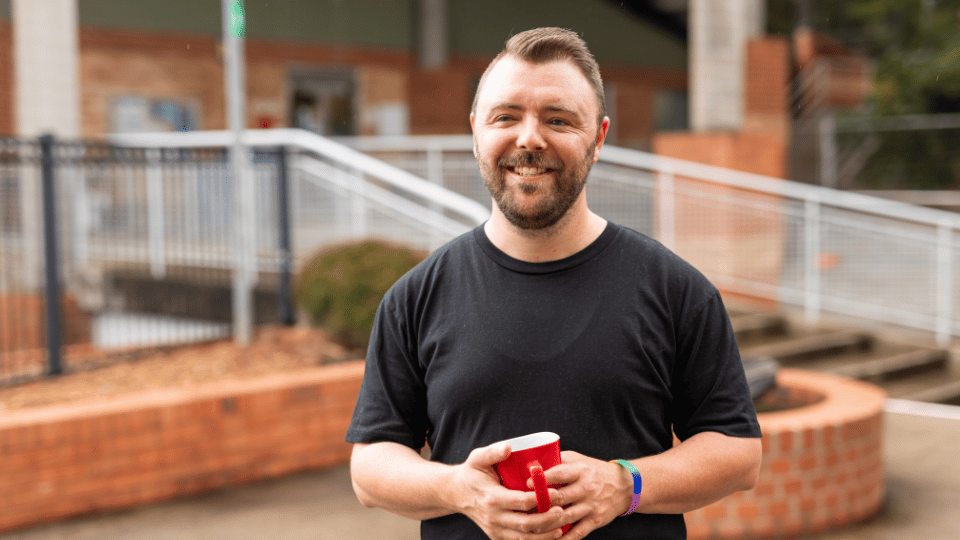It’s important to explore the nuances of autism in relationships and the common challenges that autistic people might face. Enhancing understanding in this area can lead to more fulfilling and thriving connections between people on the autism spectrum and their loved ones.
How autism affects relationships
When one or both partners in a relationship are neurodivergent, there’s often a variety of needs and expectations that need to be carefully managed.
There's no reason why relationships involving autism can't be healthy and fulfilling, as long as there’s a mutual effort to understand and adapt to the unique dynamics that autism brings.
Understanding social cues
While autistic characteristics are different for everyone, autism can influence a person’s ability to read and respond to social cues, express emotions and manage a consistent routine – factors that are crucial in all types of relationships.
Autistic people might find it challenging to interpret subtle gestures or tones, which can lead to misunderstandings and feelings of isolation. For example, people on the autism spectrum might take social nuances, such as sarcasm or non-literal language, at face value, which can lead to confusion and conflict in the relationship.
Expressing and understanding emotions
Emotionally, they might express themselves in ways that are atypical, which non-autistic partners can find difficult to understand. They might also find it challenging to read other people’s feelings. For example, your autistic partner might not be able to recognise when you’re feeling uncomfortable or sad, which can lead to you feeling neglected.
A preference for routine
Autistic people may also have a preference for routine and predictability, which can cause issues in relationships when it comes to things like spontaneity and dealing with change.
For example, if a couple makes impromptu plans, the autistic partner might feel stressed or uncomfortable with the lack of preparation time. This isn’t because they’re reluctant to spend time together but stems from their need for predictability to feel secure and calm.
Strategies for improving and maintaining good relationships
Building and maintaining a fulfilling relationship with a neurodivergent partner takes patience and a commitment to understanding and adapting to each other’s needs.
One effective approach is to use clear and direct language. Since autistic people may take things literally, straightforward communication can help to prevent misunderstandings.
It's also important to be patient with different communication styles.
For example, an autistic partner might seem to be overly blunt or direct in the way they speak to you, but this isn’t usually intended to be offensive or dismissive. Taking the time to discuss and clarify these moments can help both partners feel understood and respected.
Autistic people bring unique perspectives and strengths to a relationship. For example, their attention to detail and deep focus on subjects of interest can lead to rich conversation and shared activities that both partners enjoy. Embracing these qualities can enhance the relationship, bringing partners closer through shared experiences and mutual appreciation.
All relationships need effort and commitment to navigate challenges and grow stronger. Encouraging open communication, fostering mutual respect, and taking the time to understand each other's needs are crucial in cultivating a supportive and loving environment.
Autism and dating
Lots of people on the autism spectrum want deep and meaningful connections, just like everyone else.
However, autistic people might face particular challenges, such as understanding when someone is flirting, or navigating the unspoken rules of dating. This can make establishing romantic connections more complex.
Tips for families
Families of autistic people often have to strike a balance between protecting and supporting their loved one when it comes to dating.
On one hand, there’s a natural desire to shield your loved one from potential heartbreak or exploitation, given the challenges they may face in reading social cues and intentions. On the other hand, autistic people have a right to personal happiness and intimate relationships like anyone else, and you can support them in that.
If you have an autistic family member who’s currently dating, or wants to start dating, you can support them to:
- Recognise the signs of healthy versus unhealthy relationships – this could be done through regular and open discussions with your loved one. You could explore topics such as respect, trust, honesty and independence in a relationship
- Set appropriate boundaries – it’s important for autistic people to understand and set personal boundaries. You could help by role-playing scenarios or discussing hypothetical situations that might happen in a relationship. This can help them feel more confident to express their limits and understand when boundaries are being crossed
- Understand the principles of consent – this involves clear explanations about the importance of mutual agreement in relationships, both physically and emotionally. Use simple and direct language to explain how their consent must be freely given and they can change their mind at any time
- Express their feelings and preferences – encourage this by creating a supportive home environment where autistic people can freely talk about their emotions and thoughts. Try daily check-ins, where all family members share their own feelings and encourage your autistic relative to do the same. Practising communication skills in a non-judgemental setting can help to build confidence
General tips
Here are some more general tips and strategies to help autistic people navigate the dating scene more comfortably and safely:
- Plan dates - to manage any feelings of anxiety and uncertainty around a date, it can be helpful to plan ahead. Structure the date around a familiar activity or location to reduce unknown variables. Autistic people might also find it helpful to discuss date plans beforehand to ensure there are no surprises. They may also want to script conversations or questions to alleviate stress about unknown social interactions
- Communicate – it’s important that the autistic person isn’t afraid to be explicit about their needs and boundaries with the person they’re on a date with. If they’re comfortable doing so, it can also be helpful if they’re open with potential partners about their autism. This can improve understanding and reduce miscommunication
- Prioritise safety – safety is crucial in dating, no matter who you are. It’s a good idea for autistic people to meet their date in public places, share their plans with someone they trust and have a safety plan in place. This helps to ensure physical safety and can also build confidence in managing social interactions and relationships
The National Autistic Society has lots of helpful resources when it comes to socialising and relationships, covering everything from family relationships and making friends, to sex education.
FAQs








